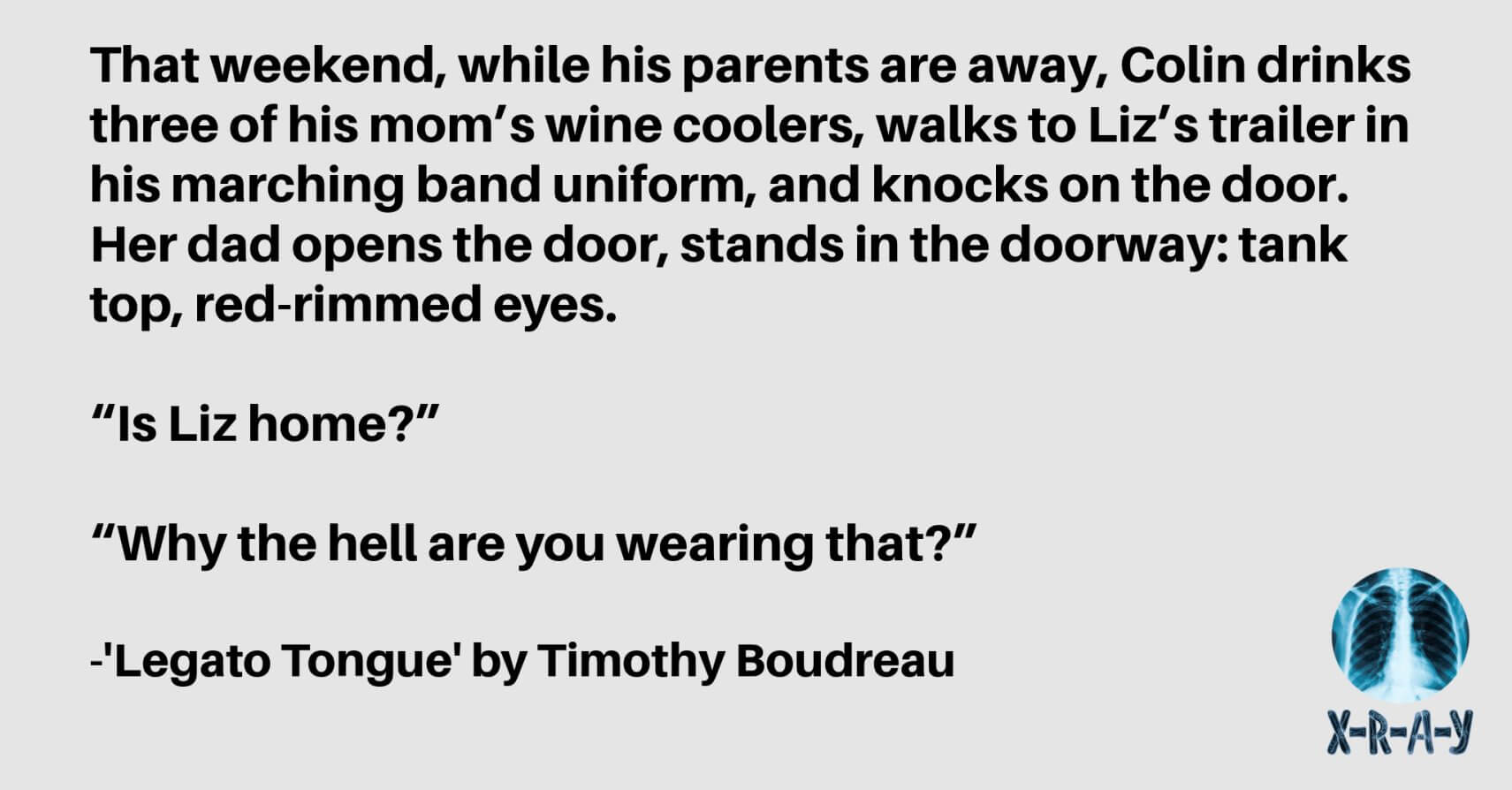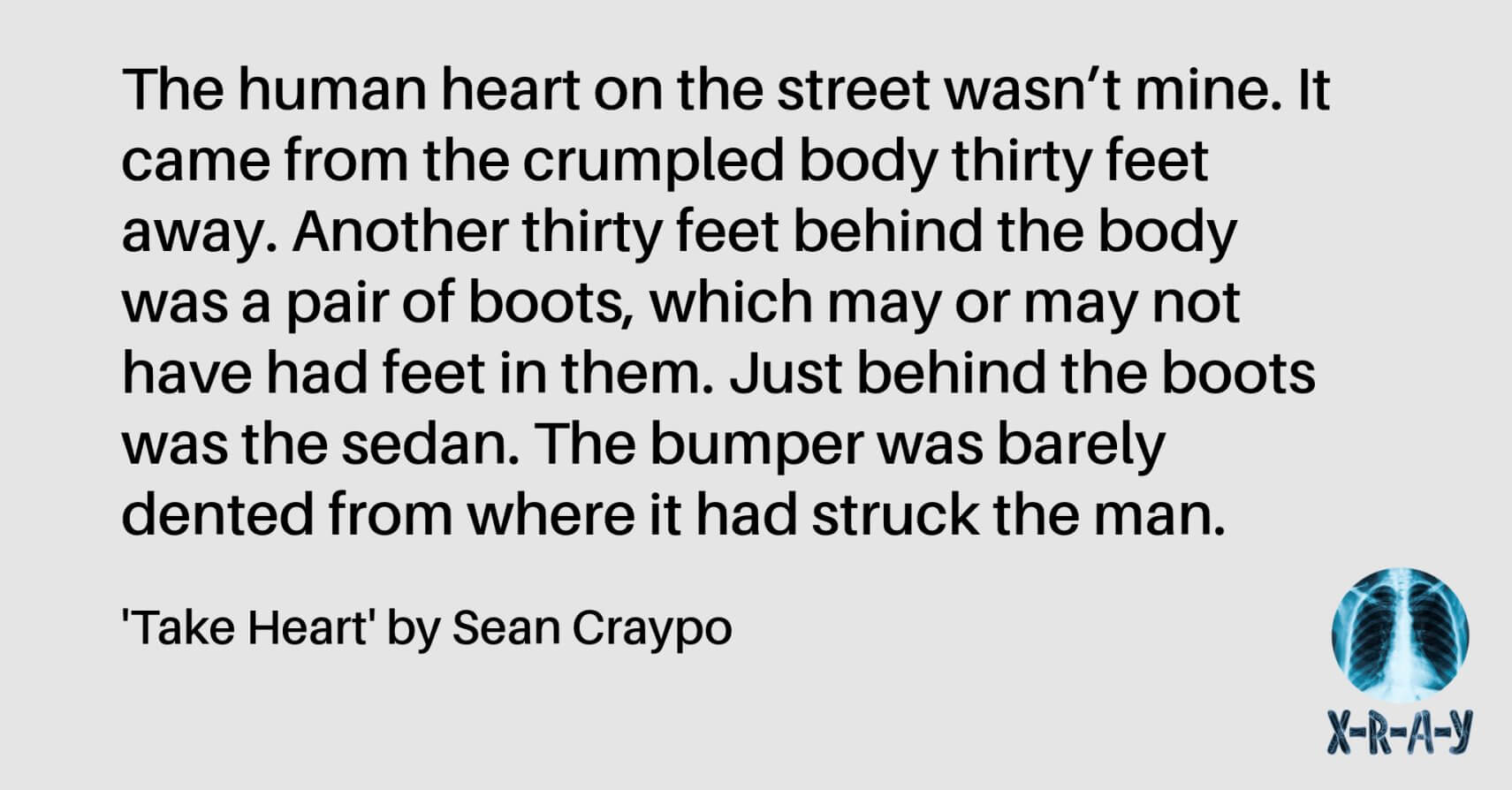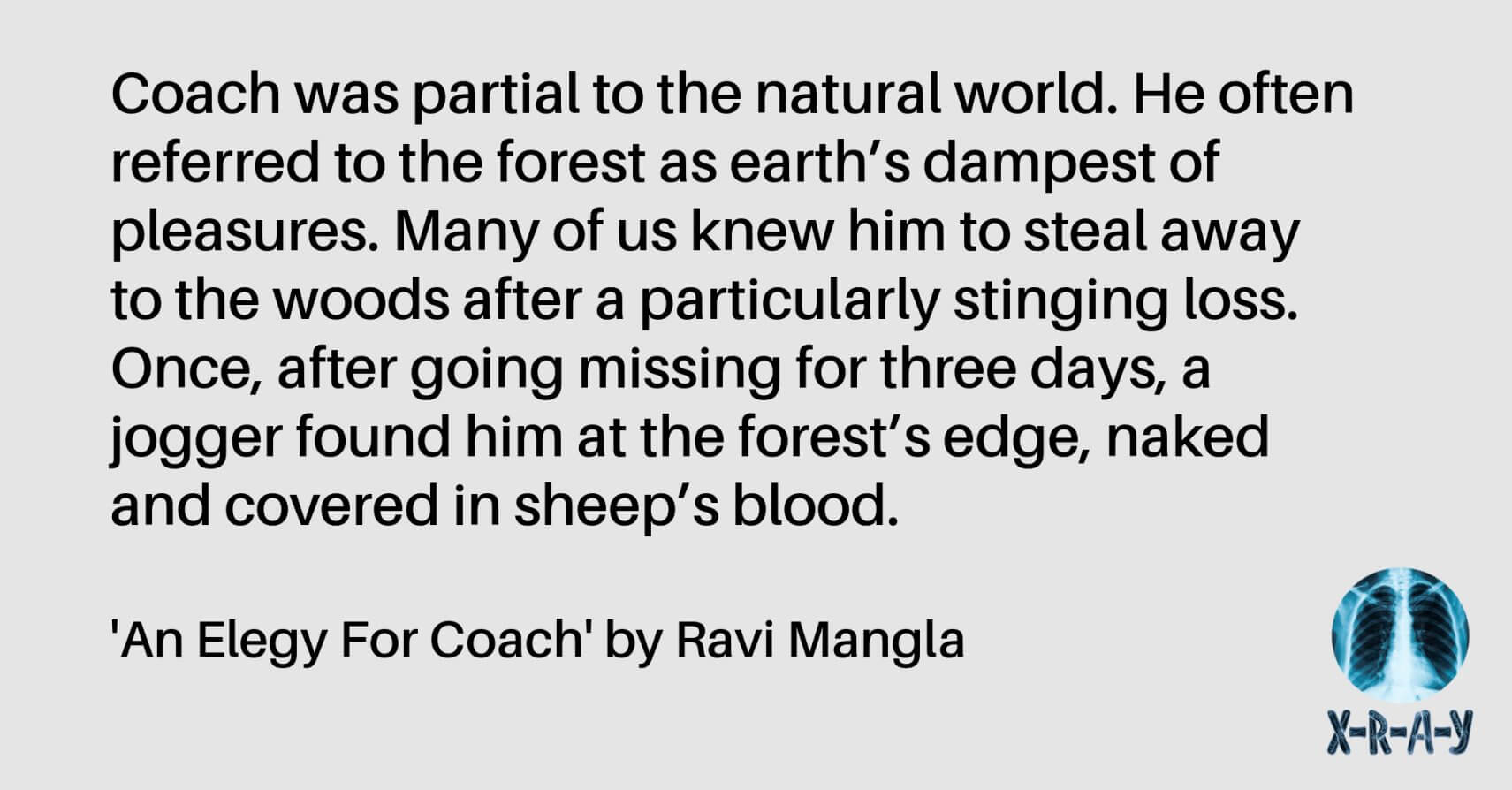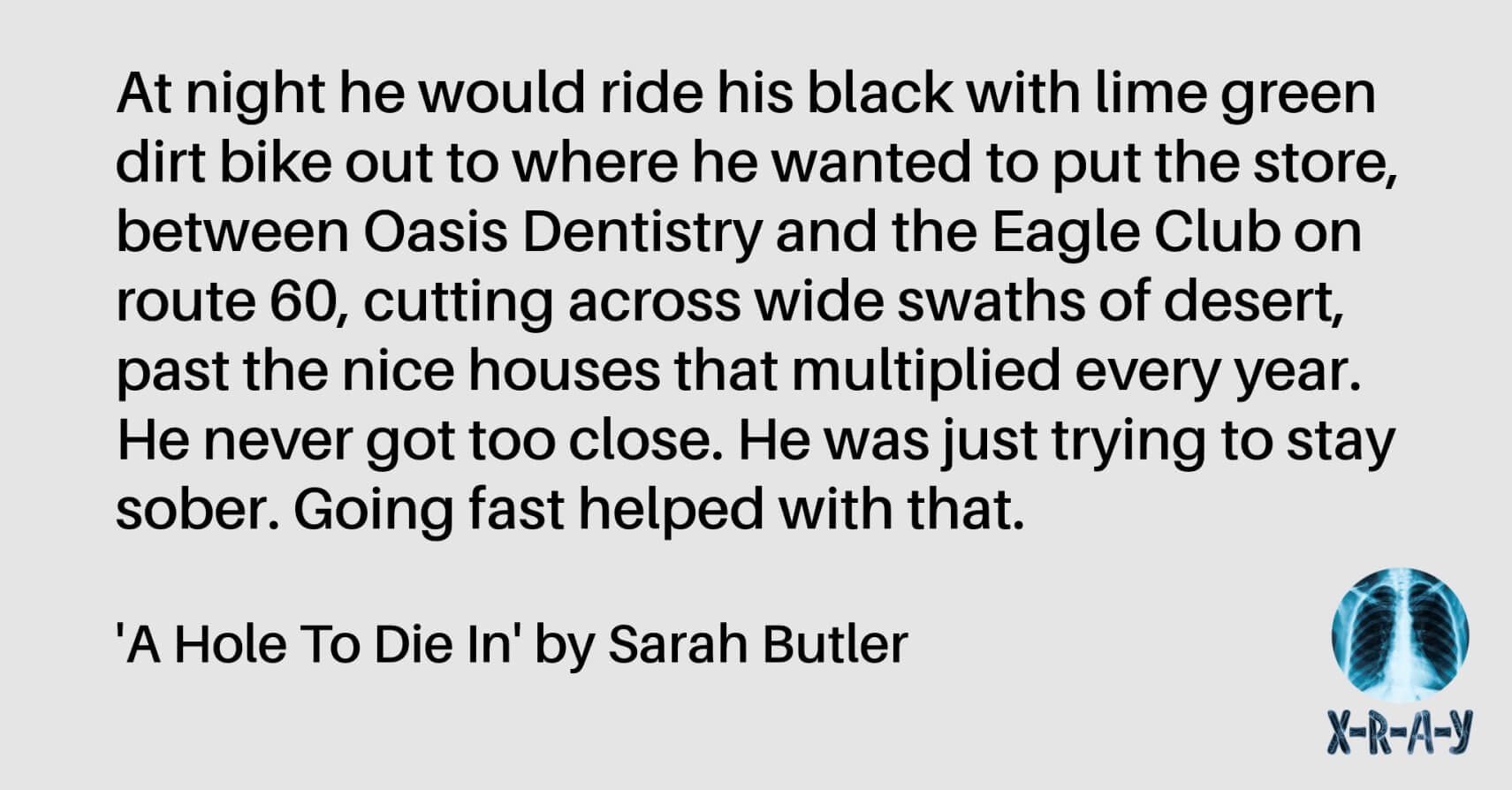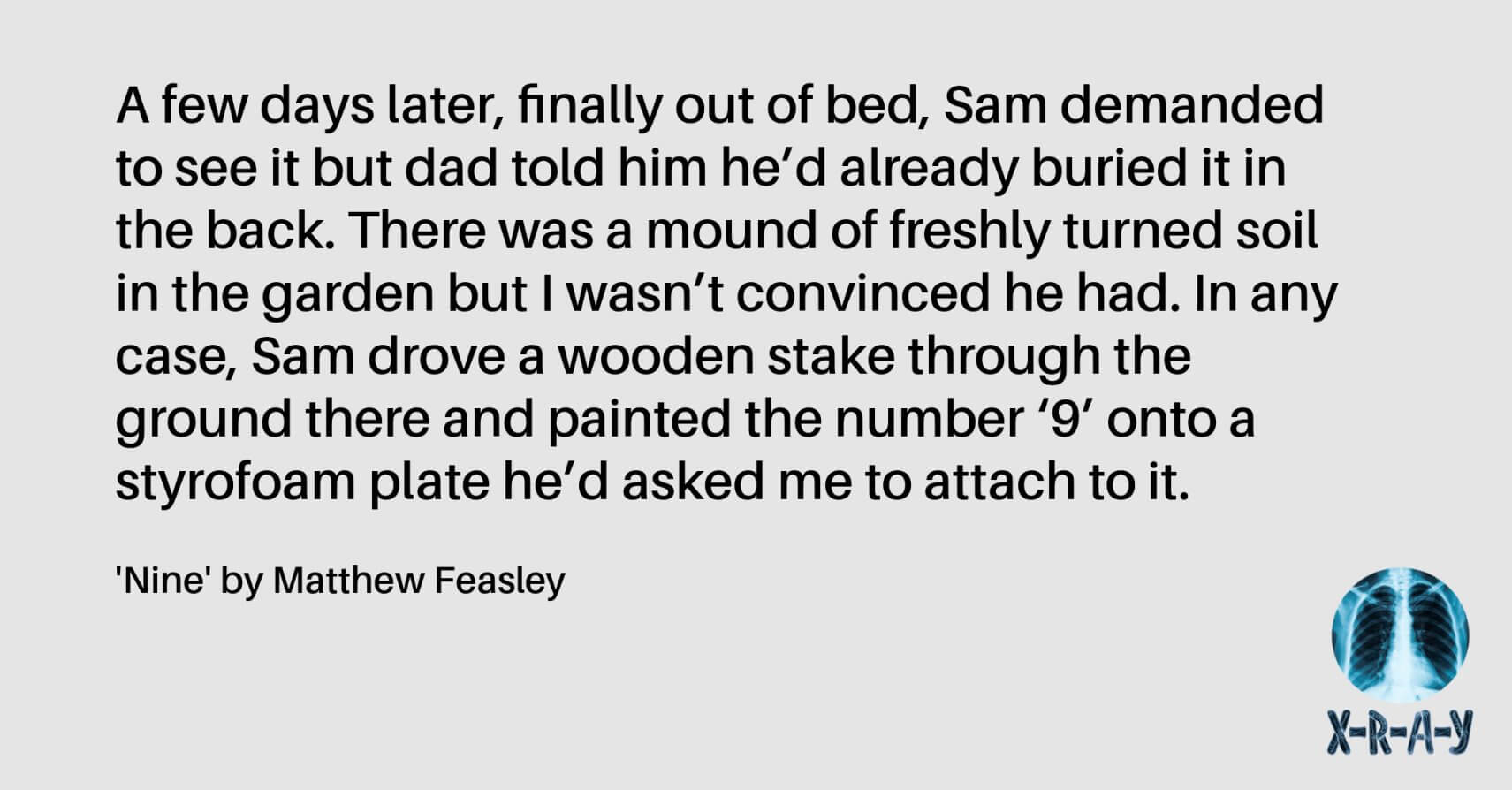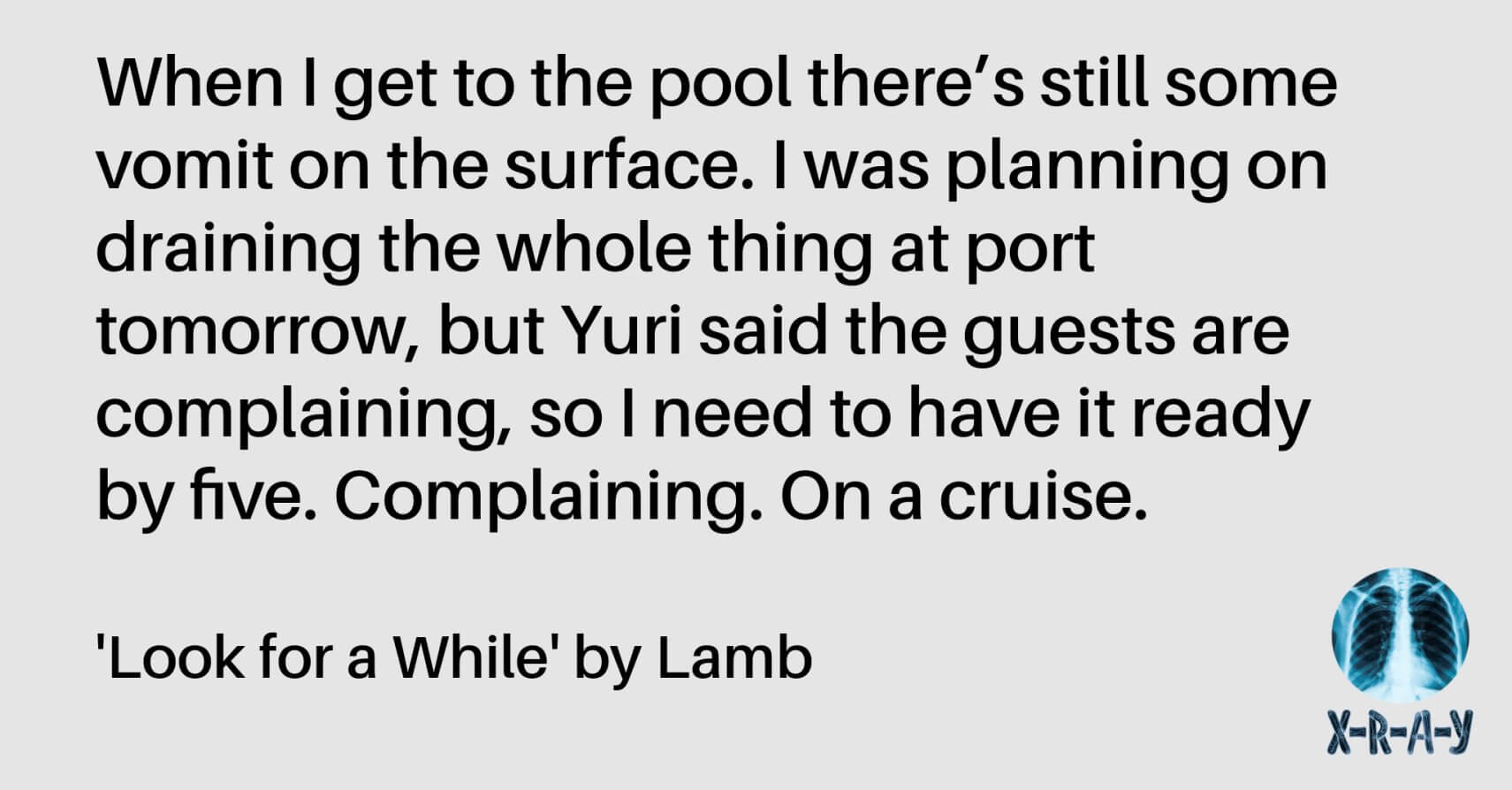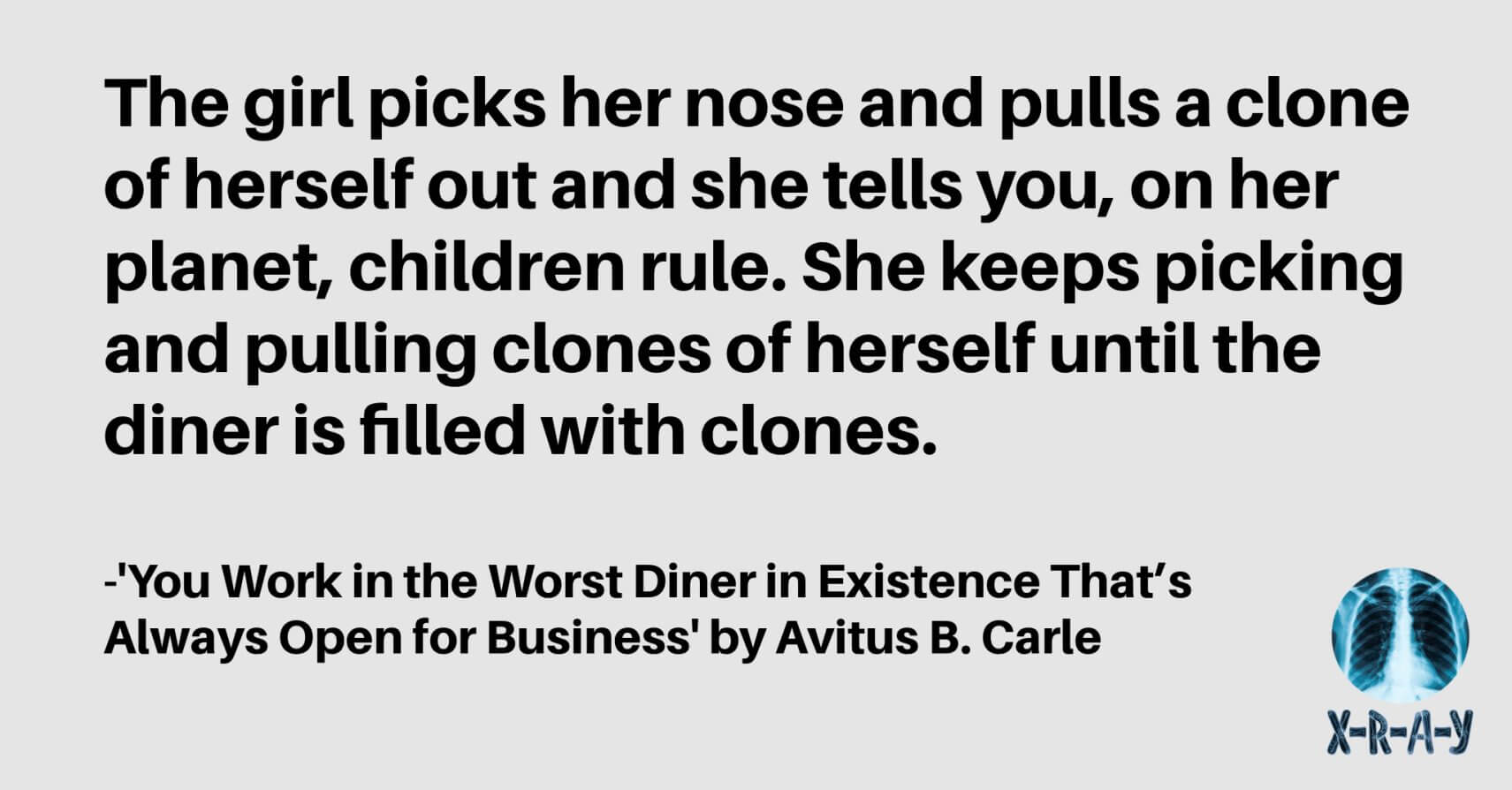
YOU WORK IN THE WORST DINER IN EXISTENCE THAT’S ALWAYS OPEN FOR BUSINESS by Avitus B. Carle
Where the brown leather stools and chairs suction to the patrons’ skin until they bruise. Where the tables wobble and the menus are always sticky and the food listed changes every day. The bar is slanted and the floor dips and your uniform remains the same except for the endless supply of toothpicks you carry in the pockets of your apron. Where you are the only employee. Where food cooks itself. Where you can gaze at a new apocalypse just outside the window every time the bell that hangs over the door sings a brand-new carol and a new customer…


